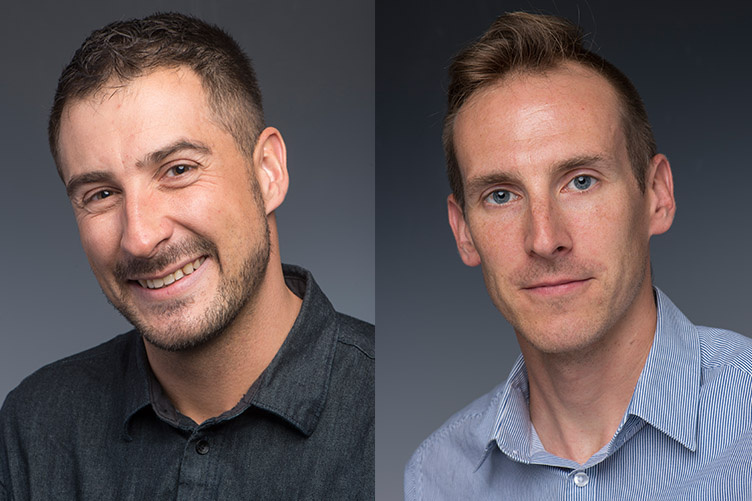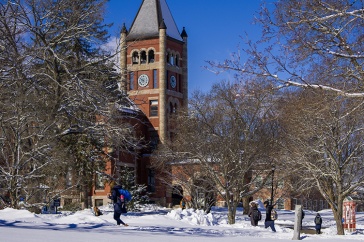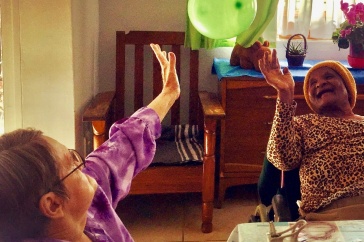
Professors Casey Golomski and Paul Robertson
Casey Golomski, assistant professor of anthropology, and Paul Robertson, lecturer in classics, humanities and Italian studies, each have been awarded curriculum development grants from the Global Religion Research Initiative of the Center for the Study of Religion and Society at the University of Notre Dame.
Golomski’s new course, African Religions: Power, Mobility, and Material Practice, “will help students identify how Africana religious and material culture make up the fabric of the Seacoast's multicultural communities and how our communities have long been connected to the wider world,” says Golomski. Students will gain hands-on practice in curation and exhibition skills by working with local African American public cultural non-profit organizations and museum collections.
Golomski is a cultural and medical anthropologist and Africanist with strong interests in the humanities, exploring religion, gender and medicine across the life course and cross-culturally.
Robertson’s new course, Religion and Cognition: Scientific Approaches to Comparative Global Religion, will explore humanity’s shared evolutionary past to help illuminate comparisons of different religions across the globe. The course will provide students with an important set of tools to use in a globalized world, says Robertson: the study of human cognition helps students “to understand and familiarize seemingly strange religious beliefs and practices from different cultures and traditions.”
Specializing in the theory of religion and ancient Mediterranean thought, Robertson teaches and researches the cognitive science of religion, the role of religion in western thought, early Christianity and Greco-Roman religion, and theory and methods in the academic study of religion.
Students interested in the study of religion may pursue a minor in religious studies, an interdisciplinary program that addresses religion as a cultural, logical or expressive phenomenon in human history. Students also may pursue a self-designed major.
-
Written By:
Susan Dumais '88 '02G | College of Liberal Arts



















































